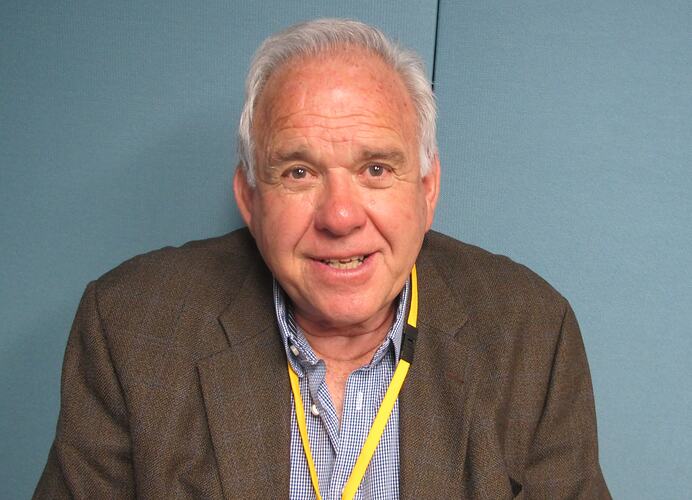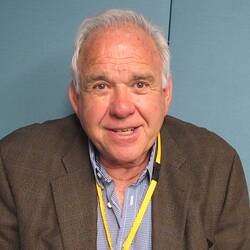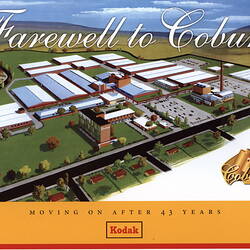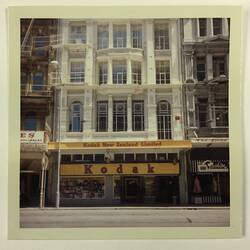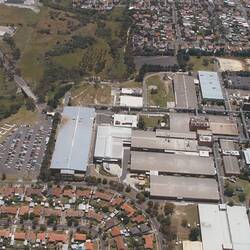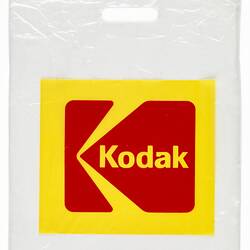Summary
From Finance Manager Kodak New Zealand to Managing Director Kodak Australasia, 1974-2004.
John Allen, Kodak Australasia Pty Ltd: From Finance Manager Kodak New Zealand to Managing Director Kodak Australasia, 1974 - 2004
New Zealand and USA
John Allen spent the early part of his career in New Zealand as an accountant working for a number of companies before accepting the job of finance manager at Kodak New Zealand in 1974. In 1981 John was sent to the headquarters of the parent company, Eastman Kodak, in Rochester USA as part of what Kodak called a developmental programme. His job was assistant to the Finance Director working with the Strategic Marketing Planning team for the AAA region, which encompassed Africa, Australasia and Asia. John found this to be a vastly diverse and interesting region. He had never really been satisfied working as an accountant, and this job was to change his career:
I was not even sure what strategic meant. So there I was on this team, still in a financial role. We would look at each country and work out the strategies for how they should go to market in those countries. And I'd only been in the role for about a week and I remember going home and saying to Di [my wife], 'I now know what I want to do when I've grown up.' ... My time in Rochester would have been about the most motivating time I've ever had in my working career, it was fantastic.
John did not want to return to an accounting job, so soon after his return to Kodak New Zealand around 1984 he was made Consumer Markets Manager. Over a decade he worked with a series of young Americans who were sent to gain experience in a General Management role in New Zealand:
...one of the General Managers who came in may have come in from Research, so the whole little company in New Zealand would all have to turn a little bit towards research, which of course had nothing to do with what we were doing there. Then that particular bloke would buzz off back to the States and another one would come in, and he might have come out of Distribution, so we'd all move a little bit over to distribution. So I was a conduit between the GM and the rest of the team. I think it was very good for me because I got to know other aspects of the company from a bigger sense than just New Zealand.
In 1992 John was appointed Managing Director of Kodak New Zealand. He forged a close association with Kodak Australasia through Ziggy Switkowski, the new managing director in Australia. Kodak New Zealand was a small concern compared with Kodak Australasia, having no manufacturing and a much smaller market. As Managing Director, John aimed to double the company's revenue from $50 million to $100 million, and he enthused his staff to work for this goal. Before it could be achieved John was offered a senior management role and directorship in Kodak Australasia. His successor, Murray Walton, proudly told him a couple of years later that Kodak New Zealand had achieved the goal.
Move to Kodak Australasia and plant closure
When John moved to Australia in 1998 he was puzzled about his new role, until he was told that he would succeed Dr Will Fraser as Managing Director. When Fraser retired in 1999, John became the first Managing Director for two decades without a science/manufacturing background. Within a few months of taking up the position John was informed that the parent company intended to close down Kodak Australasia's manufacturing plant. The advent of the impact of digital photography had resulted in a huge decline in the demand for film. John's unenviable task was to implement the closure.
John, together with the Board and Corporate Project Manager Daryl Whinney, worked out a strategy for the closure, including the costs and the timing. All of their planning was done in secret, including bringing in contractors to test the site for chemical spills, in preparation for its sale. Many meetings were held off site, to avoid suspicion. They worked with the unions to make sure that the settlement with staff was fair, and John believes that generous severance packages were given. John also developed some recommendations for Kodak Australia's future as a small digital company:
But I had no ambition at all of being part of the next piece of it. It had to be someone new, young, and IT savvy, a digital person, not the older type of Kodak person, as good as they may be.
On 16 September 2004 John had the difficult task of announcing that Kodak would close its manufacturing operations in November 2004. John recalls that the announcement was like a military maneuver. It had been carefully planned so that all Kodak employees were informed before the public. He first called all of the managers to a meeting in the theatrette and told them of the impending closure. Then the manufacturing staff, around 1000 people were called to a meeting in the canteen, where John Walsh, Director and Manufacturing Manager, took on the job of breaking the news of the closure. On the advice of consultants, medical support had been arranged and were on hand to assist the four or five people who collapsed on hearing the announcement. According to John:
A few months later other Kodak houses around the world were closed and they had enormous problems with unions and employees and so on; because of our dedicated planning I'm pleased to say we didn't have any problems. One of the things I found disappointing was that no official acknowledgement at all came out of the region or the United States. Perhaps a 'well done' would have been nice as we had really had a stressful time for two or three years. I think that's where the culture of the whole place had sort of shifted. So that was that. I was basically out of a job. I went from being Chairman and Managing Director of Kodak Australasia one day - we were doing some massive extensions and renovations to the family house - and I became a chippy's labourer the next day, doing hard physical work, which was perhaps the best outcome for me.
References
HT 37024 - Interview with John Allen, interviewed by Lesley Alves 30 April 2014.
More Information
-
Keywords
Photography, Managers, Manufacturing, Factories, Biographies
-
Localities
-
Authors
-
Article types
